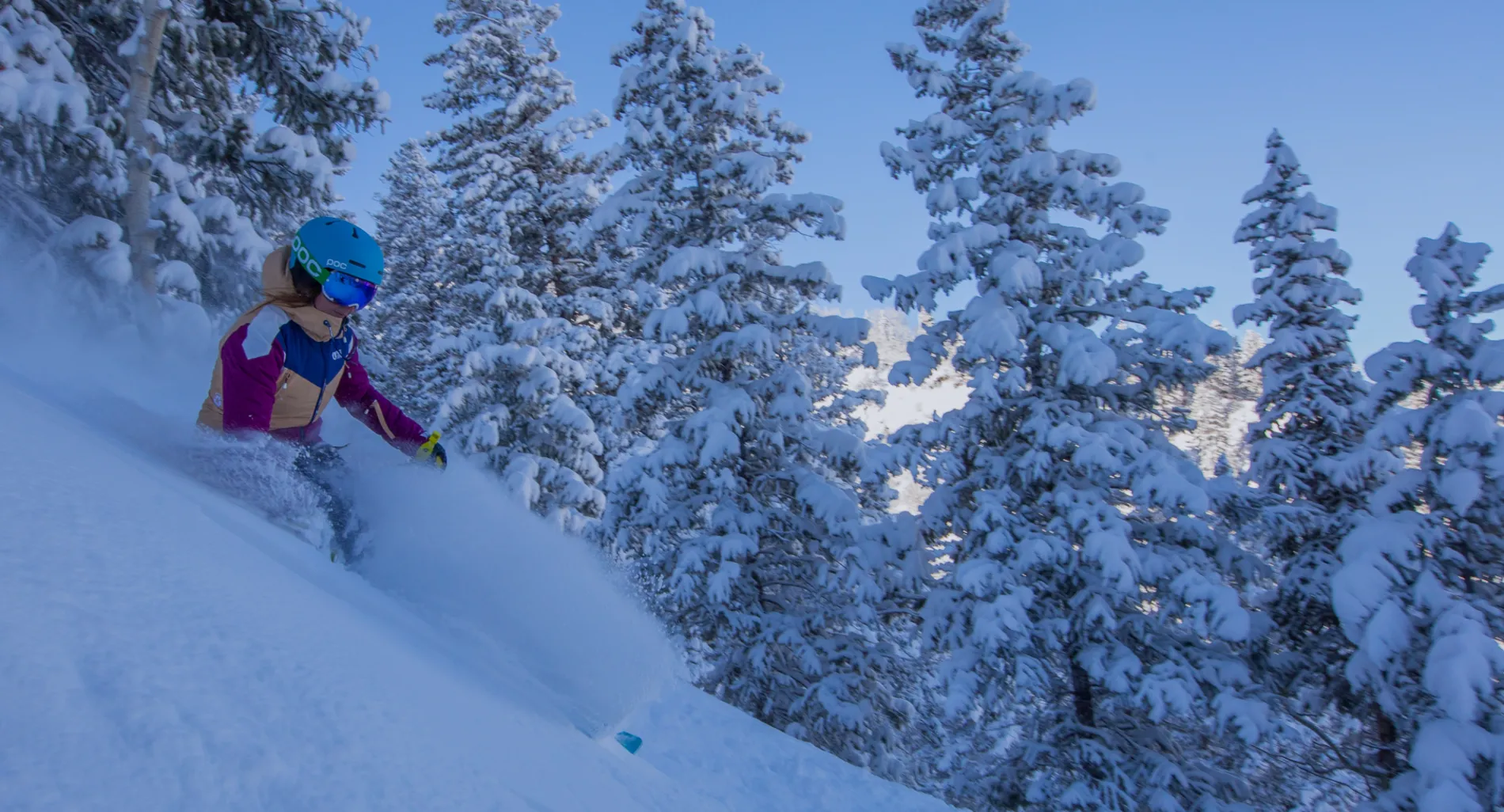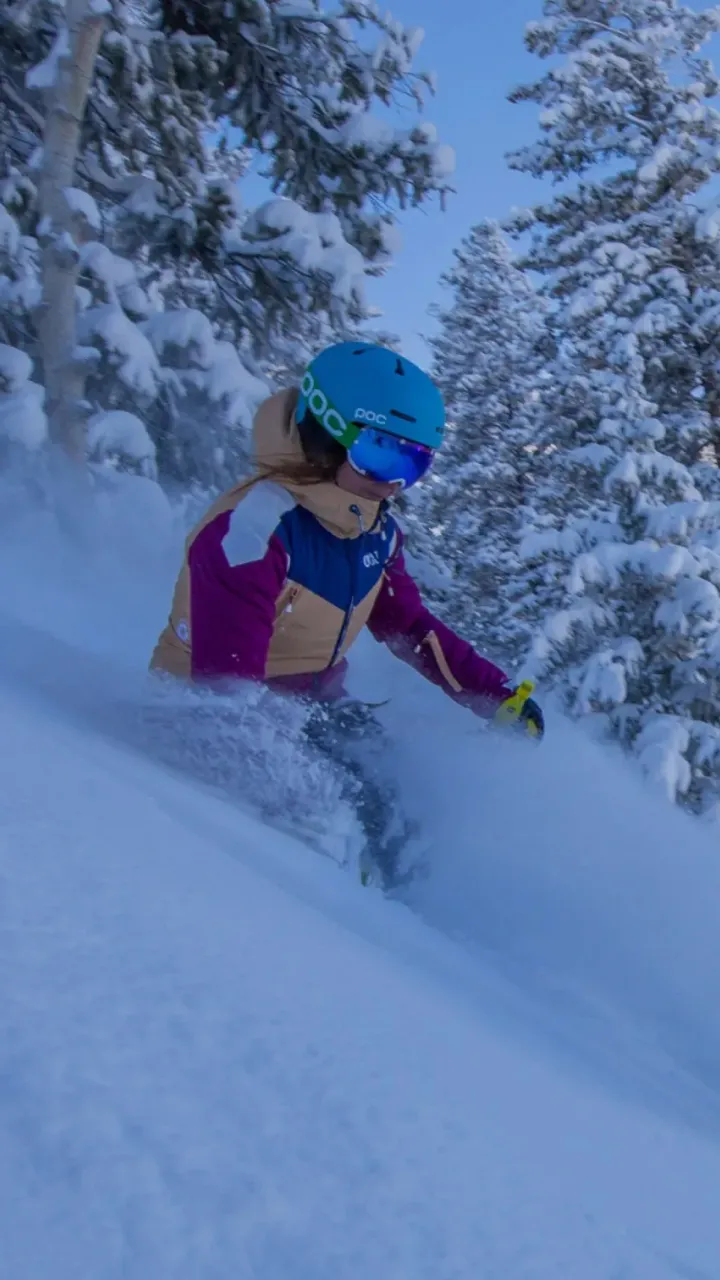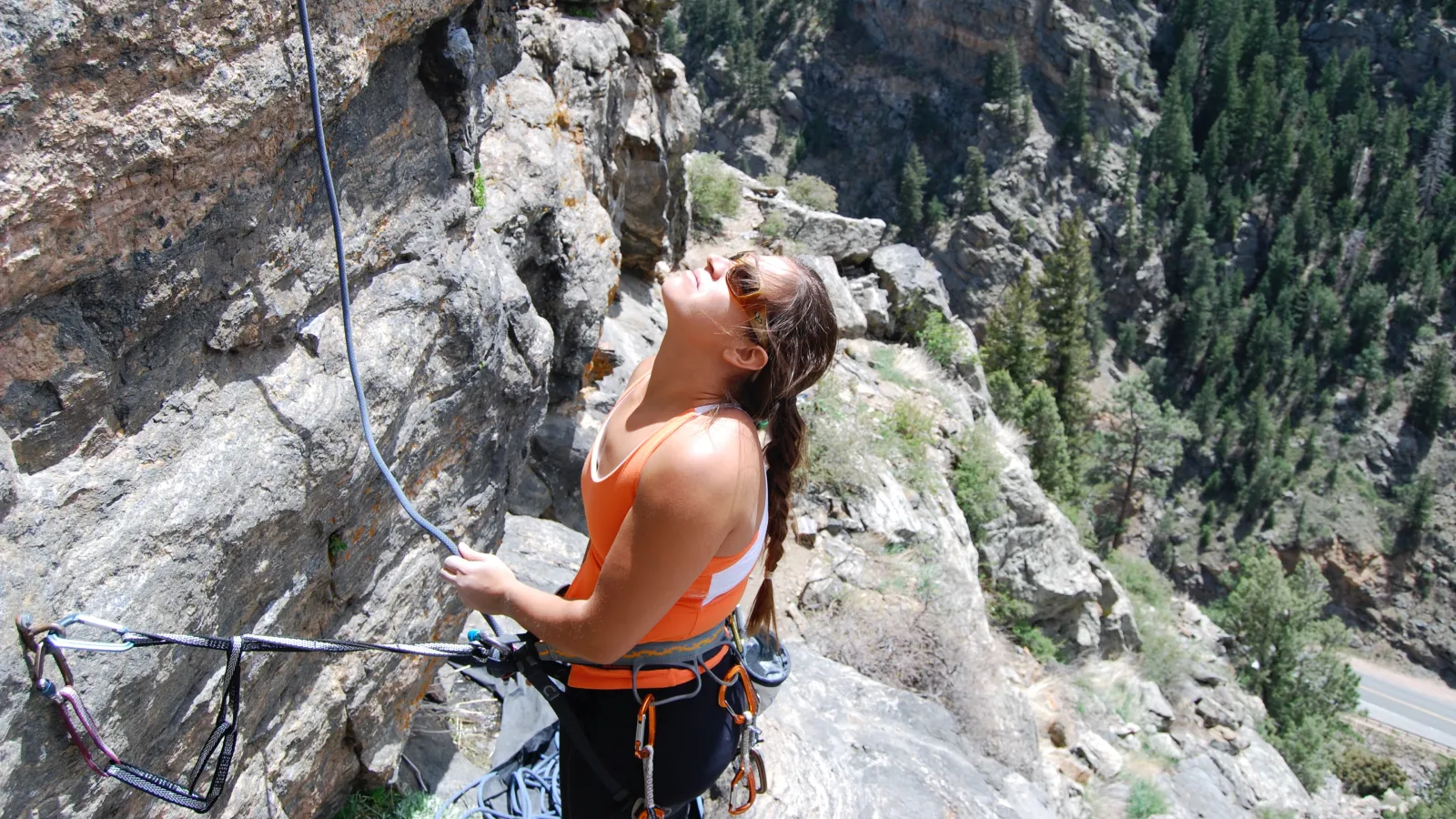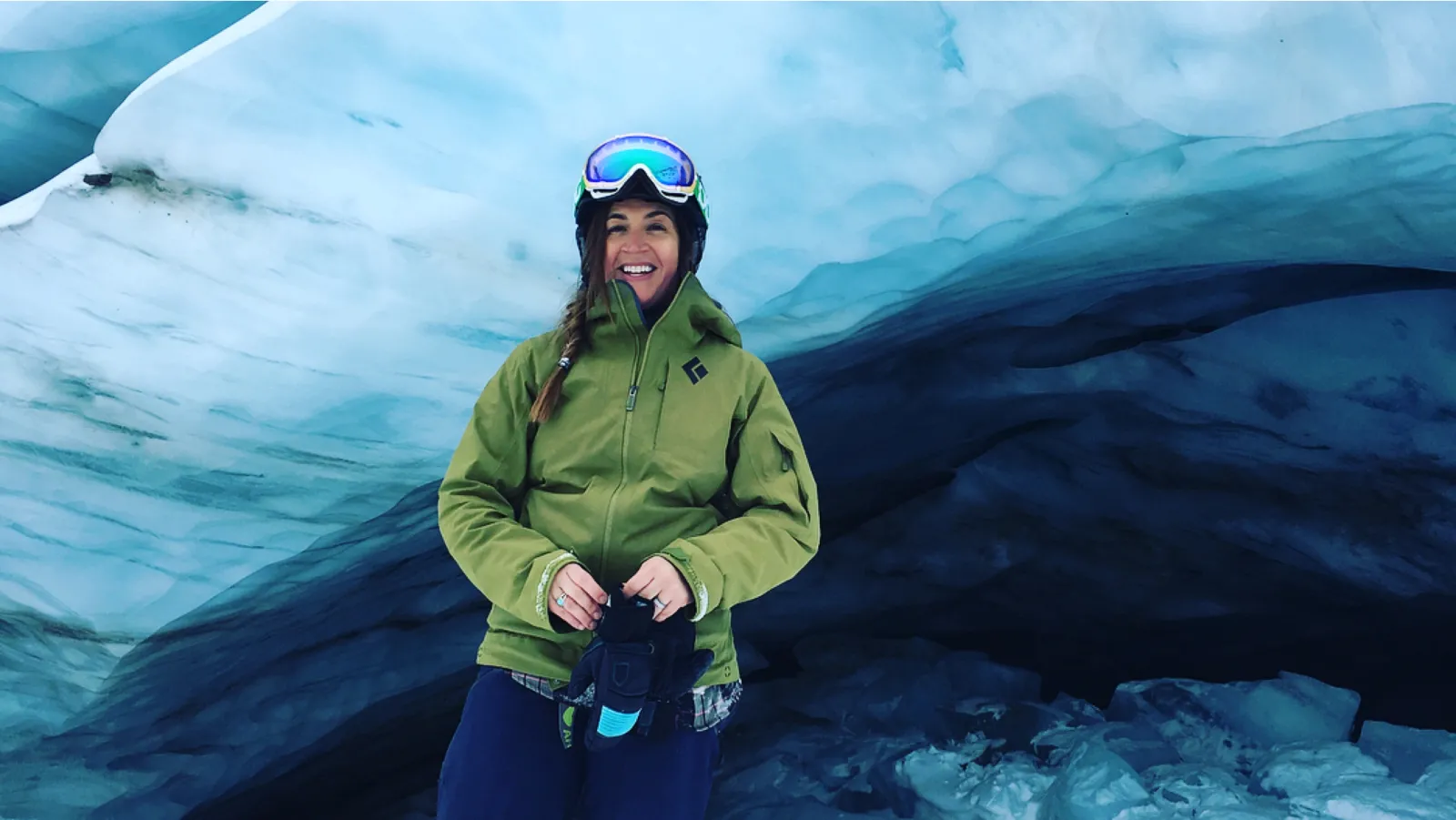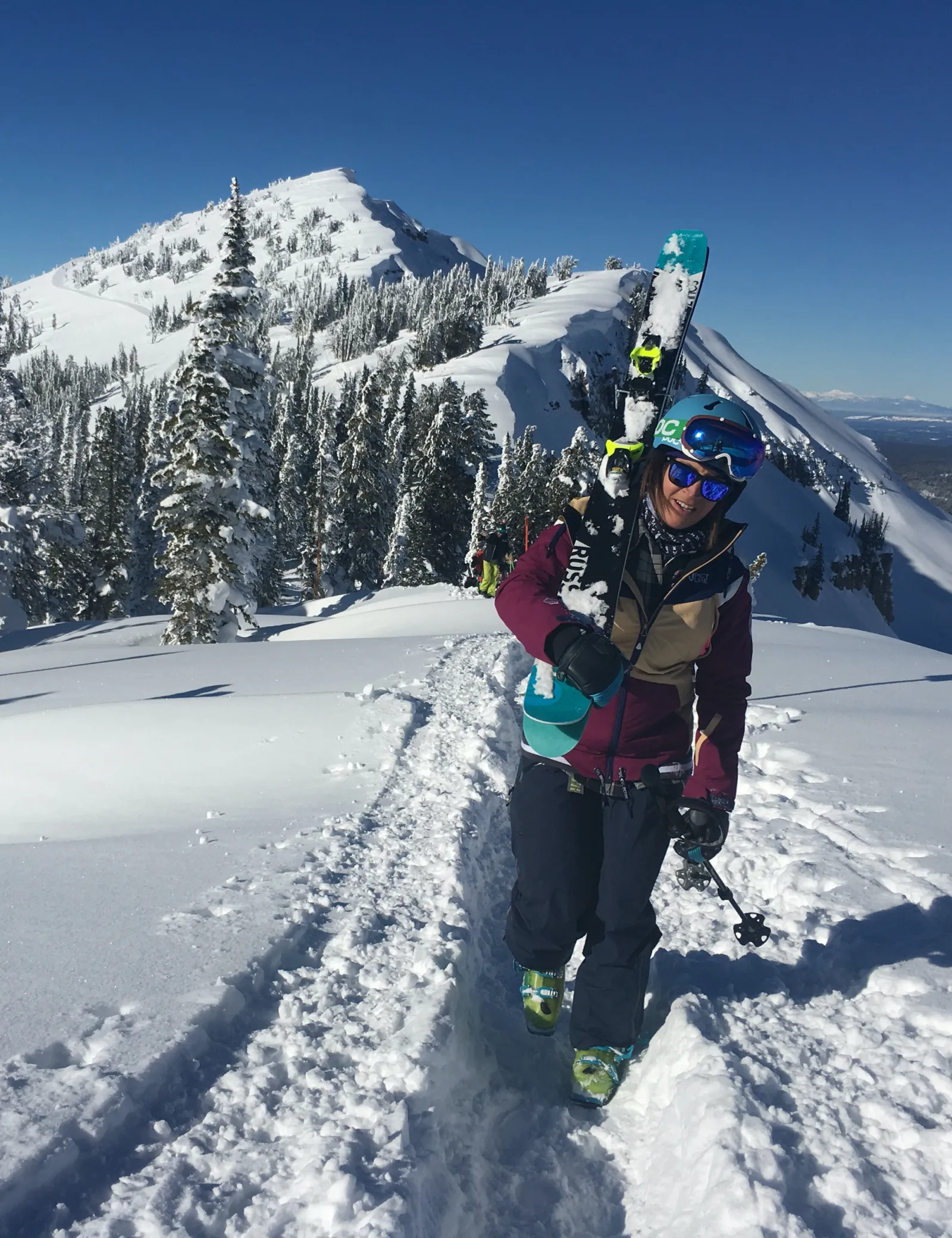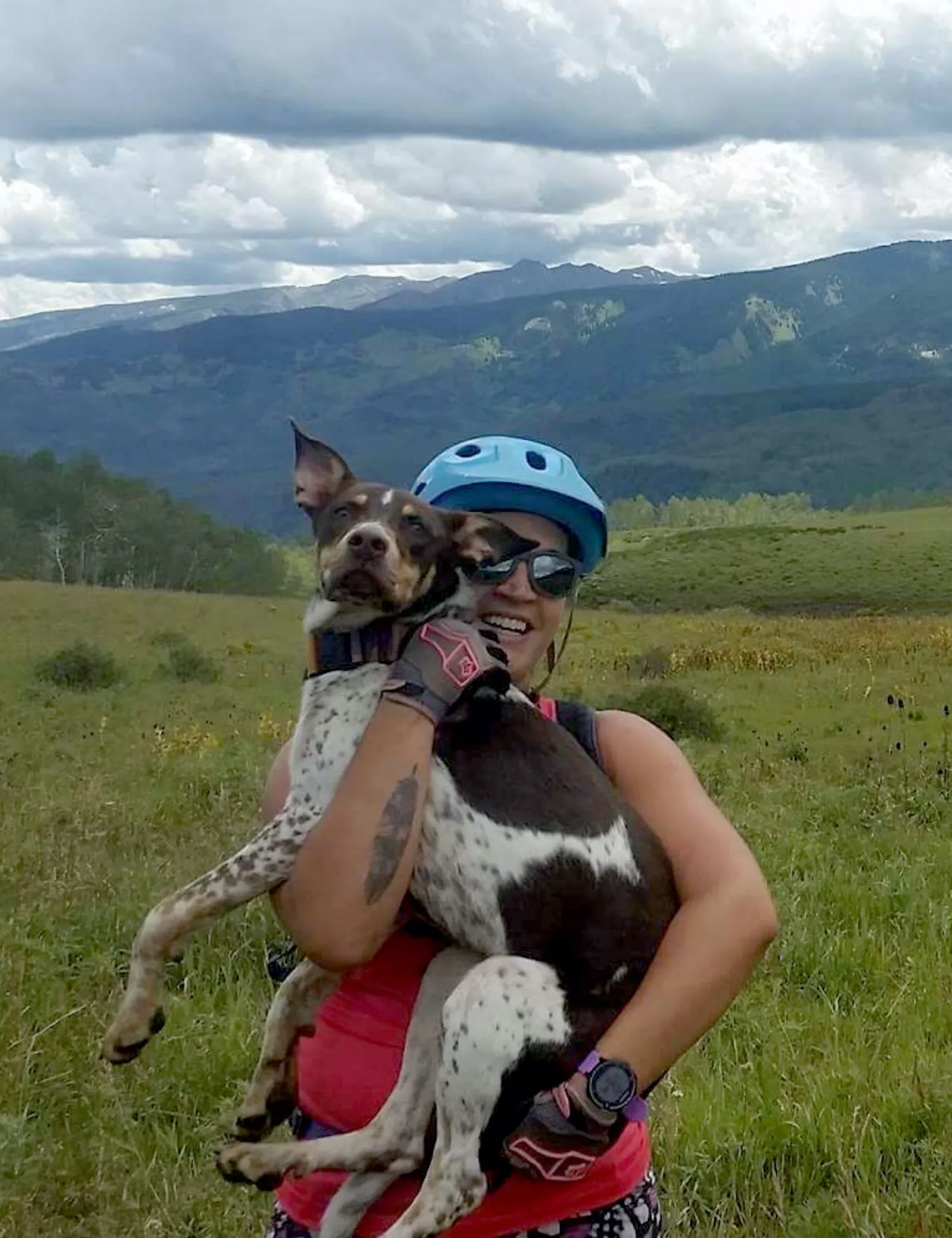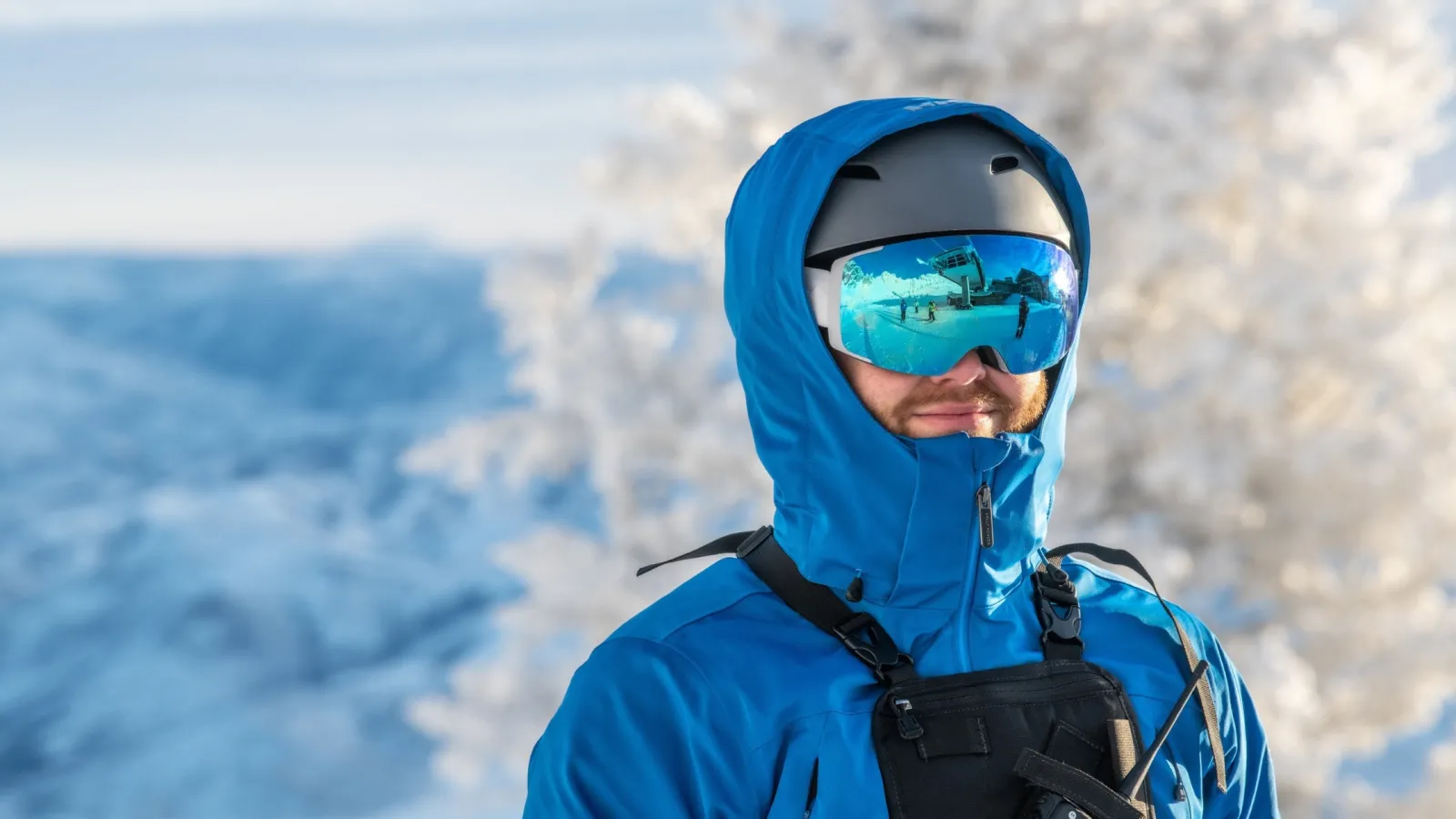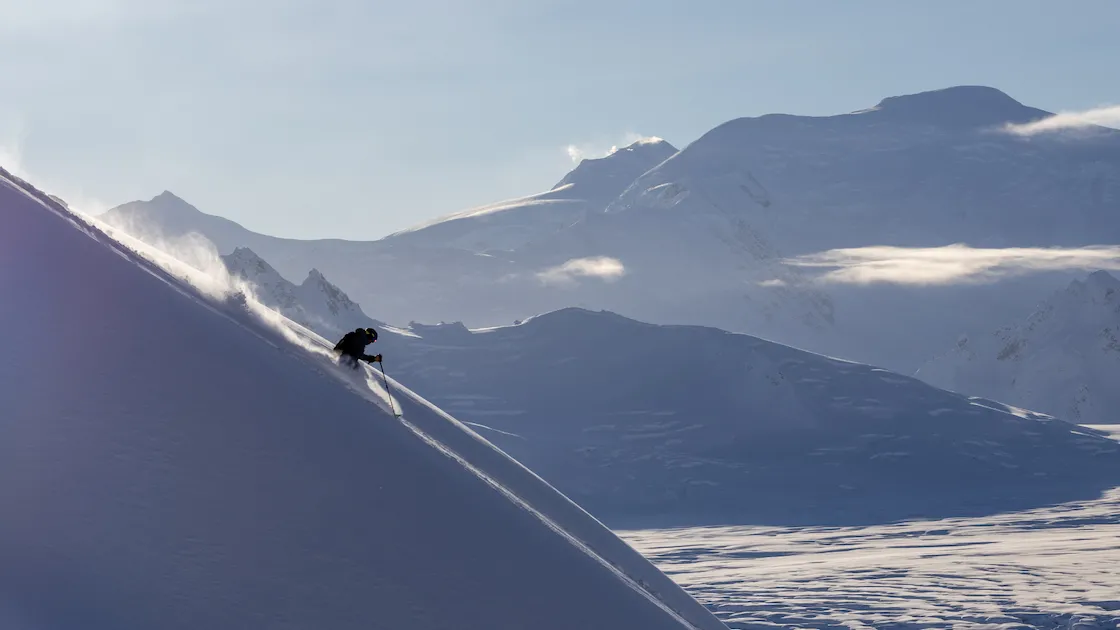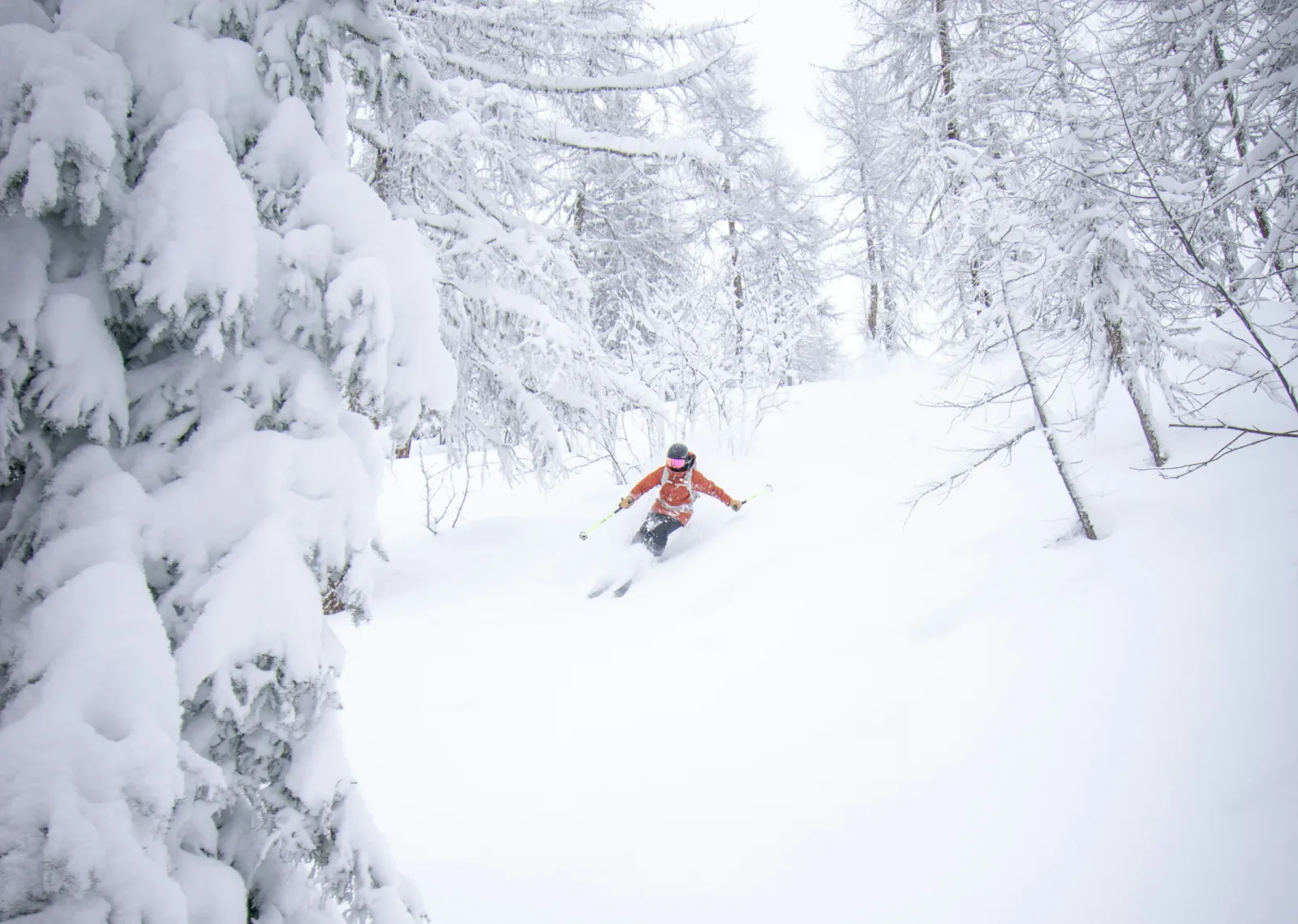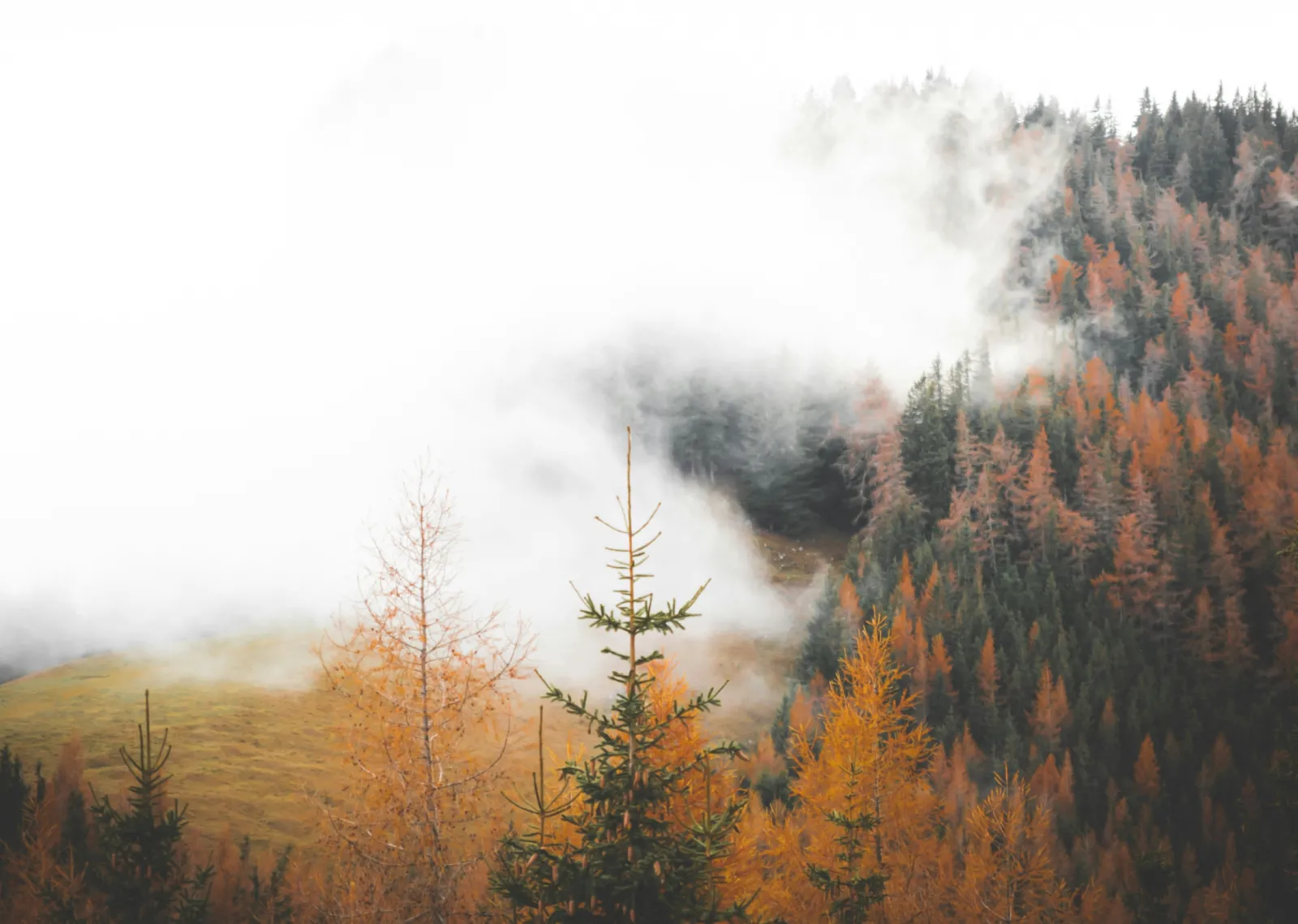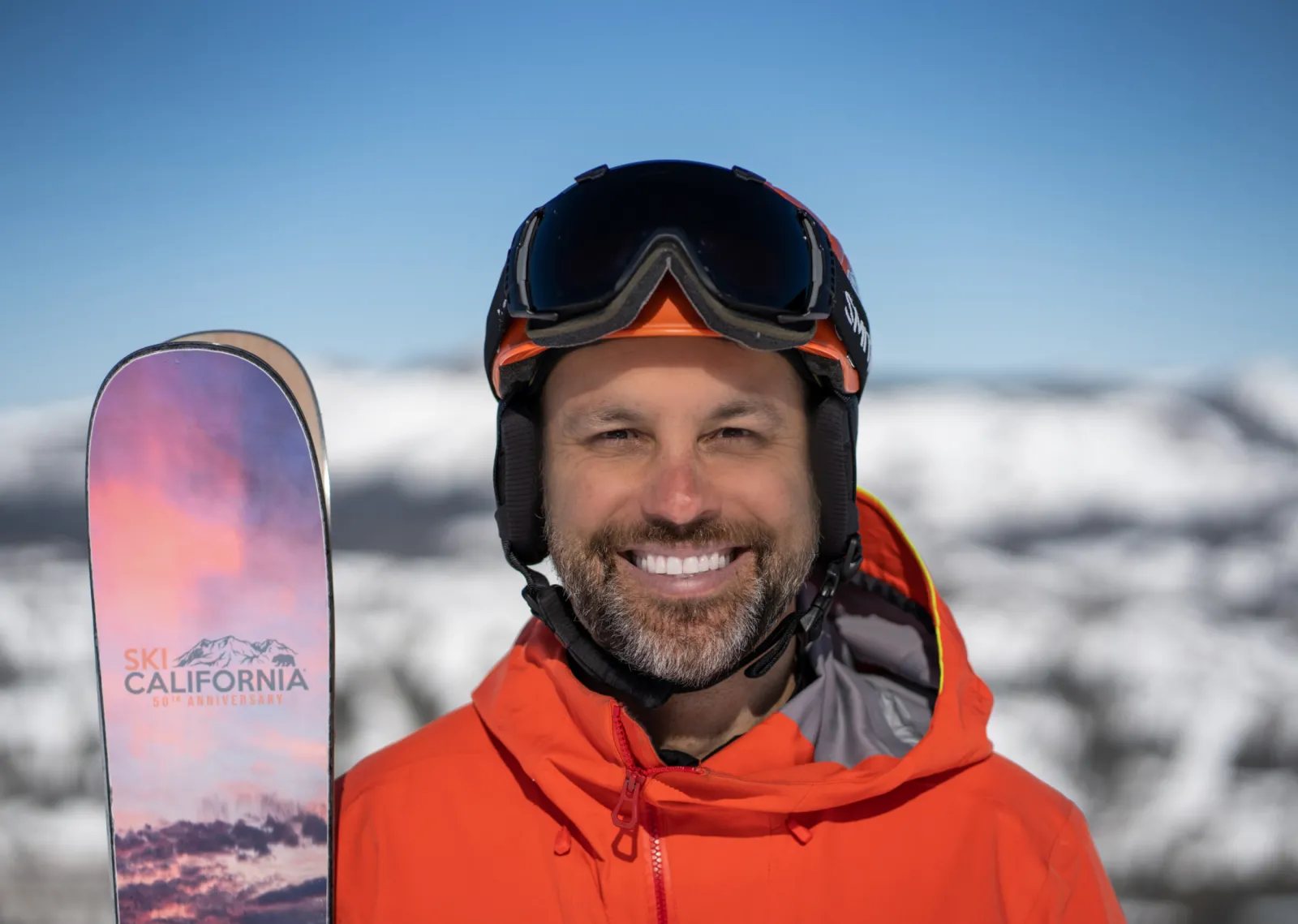Inside Origin: Laura Merino
What do you call a woman who starts skiing at 27, never takes a lesson, and enters her first freeride comp at 29? And who lived in a yurt through four Colorado winters? You can call her what you want, but we call her Laura Merino, an Account Director and Senior Strategist here at Origin. We love Laura for her irrepressible good cheer and sharp insights, and we love her because beneath all that, she’s a badass plain and simple. Don’t believe us? Read on and judge for yourself.
Origin: You didn’t exactly grow up in an outdoors-loving family, did you?
Laura Merino: No. I grew up in suburban Massachusetts. My dad is a doctor and my mom’s a nurse, and I had minimal outdoors influence as a child. I went to an all girls Catholic school, and it was a pretty miserable experience for me. I really wanted to do something like NOLS (National Outdoor Leadership School) or Outward Bound, but my parents were very traditional and believed a formalized education would set me up for success and outdoor education would be a waste of time.
Origin: How did that change for you?
LM: I went to college at Bates, in Maine. And pretty much the first thing I did was sign up for a freshman orientation backpacking trip. I remember getting my list of gear and going to the local REI, and just checking everything off the list even if I didn’t know what I was going to use it for. And that trip changed my life. The next year, I even decided to become a trip leader for incoming freshmen, and lead a trip to the summit of Katahdin, which is located in Maine and the highest peak on the Appalachian Trail.
Origin: That’s so cool. What came next?
LM: As part of Bates’ curriculum, students took a six-week intensive class each Spring, and as an anthropology major I signed up for a class that focused on the Anasazi culture and we travelled to Utah to experience and learn in their very habitat via rafting the San Juan River and backpacking through the Grand Gulch Primitive Area. It was an amazing experience, and it was the first time I was in the west. I was like “oh. So these are mountains!” I knew I needed to spend more time in the west, but after I graduated, I was a little lost… For my entire life up until college graduation, everything was prescribed. After middle school you went to high school and after high school, you went to college, and after college you get a job, but knowing what kind of job was the right job for me was unknown. I moved back with my parents for a while, and ended up working at Mass General Hospital in the department of neurology as a neuro-psych test administrator and eventually moved on to being a fundraiser for medical research. Every Friday, I’d hop in my car and travel to Vermont, New Hampshire, and Maine just to get into the mountains to play.
Origin: Sounds like you were really into hiking and backpacking.
LM: I was. And then I started rock climbing at a gym in Boston and I just loved that. I was climbing six days a week, and starting to think about getting out of the city; everyone my age was partying all the time and I really didn’t meet many like-minded people. So I gave myself a six-month deadline to get my stuff together and move out west.
Origin: Where’d you go?
LM: I really wanted to live in the mountains of Colorado, but there were no jobs, so I went to Denver and got a job fundraising for the University of Colorado Hospital. And I started working in a ski shop in the evenings. I didn’t ski yet, but I’d noticed there was this thing called winter, and I figured I should learn how ski or snowboard. I went with skiing because everyone told me that was a better way to get into the backcountry, and that’s where I wanted to be. So I got some skis, and learned by chasing around all the guys who worked in the shop.
Origin: Seems like that worked out pretty well for you.
LM: I never had any lessons, but I really took to it. Two years after I started, I entered my first freeride competition, and I was totally hooked.
Origin: So how’d you go from hospital fundraising to outdoor industry marketing strategy?
LM: I got an opportunity to move to Aspen for a job with the University of Colorado at their medical think tank. I was like “hell, yeah! That’ll get me in the mountains.” So I moved, worked for the school for 2.5 years and then they sold the property. They wanted me to come back to Denver, but I finally felt that I was home.” Which was great, except now I had no job and was living in a really expensive place. During my unemployment, I met some folks who invited me to Snowbird to be a ski tester for SKI magazine, and that was the first time I realized that people could really combine their passion for the outdoors with work and actually make a living.
Origin: What’d you do?
LM: Well, I’d just met Mark [ed note: Laura’s husband] and he’d just bought a yurt. I was like “who is this guy and why is he buying this big piece of canvas?” Pretty soon, we were living together in the yurt, slowly figuring out how to improve our off-grid living conditions. We really suffered that first winter.
Origin: I bet.
LM: It was a good experience, though. It really taught me a lot about how little I need to be content.
Origin: What were you doing for work?
LM: I was catering and babysitting at night and being a ski bum by day. Living in a small community, I was introduced to some of the guys at Backbone Media, an outdoor industry media and PR agency. So I interned there, and after my internship, they offered me a full-time job, and I worked there for seven years doing media strategy.
Origin: How did Origin come into view?
LM: After working at Backbone for a while, and being exposed to all these other aspects of marketing in the outdoor industry, I really wanted to spread my wings and learn more about the other avenues of marketing outside of media planning. I was like “I want to learn it all!” I ended up meeting Danielle and MJ [ed note: Origin’s founders] through mutual clients they had with Backbone. I reached out to them just because I figured they knew a lot of people in the outdoor industry and might have some good ideas for me. And what they said was “do you want to work for us?”
Origin: Those two know a good thing when they see one.
LM: That’s one of the things I love about Origin: If they see potential in you, they’ll give you all sorts of opportunities to develop it. They’ll push you really hard, but they’ll also support you through it, so even if you’re having a hard day, you’re always going to come out stronger on the other side. They’re just really vested in their employees, and that’s so cool to see and experience.
Origin: Stop. We’re blushing. Talk about your approach to strategy for a moment.
LM: I think of strategy as a blend of art and science. I’m definitely a data nerd; I love looking at spreadsheets and trends in data, both in the industry and within the market category. And as an anthropologist, I am also fascinated by human behaviour, why people do the things they do. But I also like that it’s not all about data, and that sometimes, two plus two doesn’t equal four. It’s really interpretive, you really need to study people and what makes them tick, what makes them act. And that’s not always rational.
Origin: How does your insight into strategy inform your view as a consumer?
LM: Well, for one thing, I now read magazines twice: The first time, I read only the ads. I can’t pick up a magazine and not look at the ads first. I like to see if I can spot the insight behind the ad, and usually I can, although I have to say that it’s not very often that I think an ad is really good. And I’ve become much more aware of why I buy the things I buy, and what I’m connecting to when I make those choices. In my younger years, I was totally infatuated with gear, but now I want that one thing that works and makes me happy, and I’ll use it until I’m putting duct tape on top of duct tape. The truth is, there’s so much excess out there. I want to stay conscious of what’s really important.
Origin: It’s people like you who drive creative agencies crazy.
LM: Well, maybe you could just think of it as a really good challenge.
